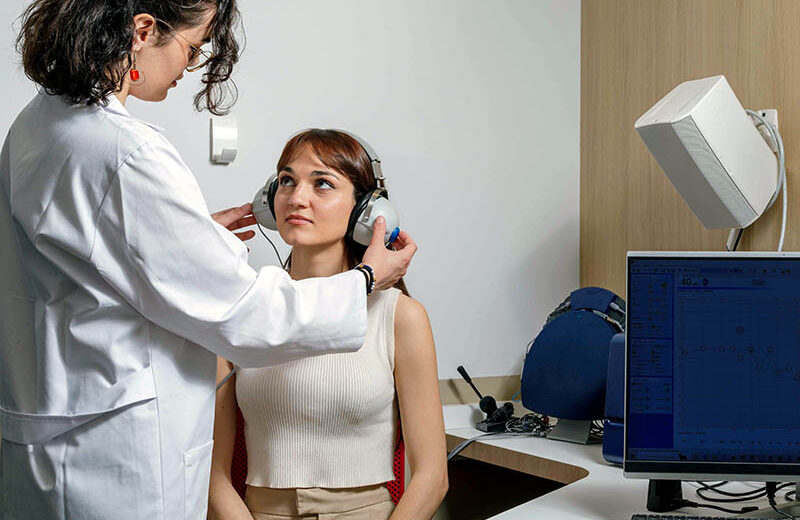Hearing loss can have a substantially negative impact on one’s overall health, both physically and mentally. Therefore, taking necessary measures to safeguard hearing health throughout one’s lifetime is crucial. Regular hearing testing is an essential component of achieving this objective. It is crucial to receive a diagnosis for hearing loss as it enables the individual to access the necessary treatment and support. Despite the importance of regular hearing tests, recent findings indicate that a mere 20% of adults have undergone a hearing test within the past five years.
Hearing Test Facts: Why Do I Need a Hearing Test?
Hearing tests are vital in assessing an individual’s hearing ability across the full range of audible frequencies. These examinations are crucial in determining the extent of hearing loss and identifying tailored solutions for specific needs. Comprehensive hearing tests are conducted in a soundproof booth, where the individual responds verbally or uses a clicker to indicate their ability to hear various tones and frequencies. This process provides a thorough understanding of the individual’s hearing abilities and ensures appropriate recommendations are made to address hearing-related concerns.
When to Schedule a Hearing Test
The frequency at which hearing tests should be conducted varies by age and is a matter of general advice. We recommend that children undergo hearing tests every two to three years, while adults should have their hearing tested every three to five years. Individuals aged 50 and older should have tests every two years, while those aged 60 and older should have annual hearing tests yearly. However, the testing frequency may be subject to variation on a case-by-case basis, particularly in cases where symptoms of hearing loss are present.
There are many signs or symptoms that indicate you may need to schedule a hearing test. For example, you may need to meet with a hearing health professional if:
• You find it hard to engage in conversations with others, especially in noisy or crowded environments or when more than one person is talking.
• You find that you are asking others to repeat themselves.
• You are constantly adjusting the volume settings on your phone, TV, or other devices – at volumes that others say are too loud or uncomfortable.
• You notice a buildup of earwax or discharge on your pillows after waking up after sleep.
An individual experiencing hearing loss will typically experience several of the symptoms listed above, though it impacts every person slightly differently. If the above symptoms feel familiar or you’ve noticed any sudden changes to your hearing, contact your hearing health professional today. They can perform tests and analyses to evaluate your hearing health, supplying beneficial advice and aid. For instance, they can provide invaluable tools and information for reducing symptoms. Their support can have a tangible impact on your hearing health and well-being.





